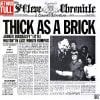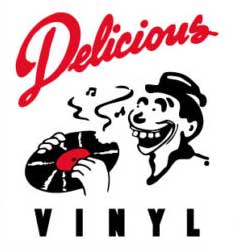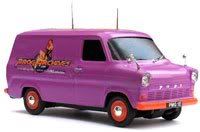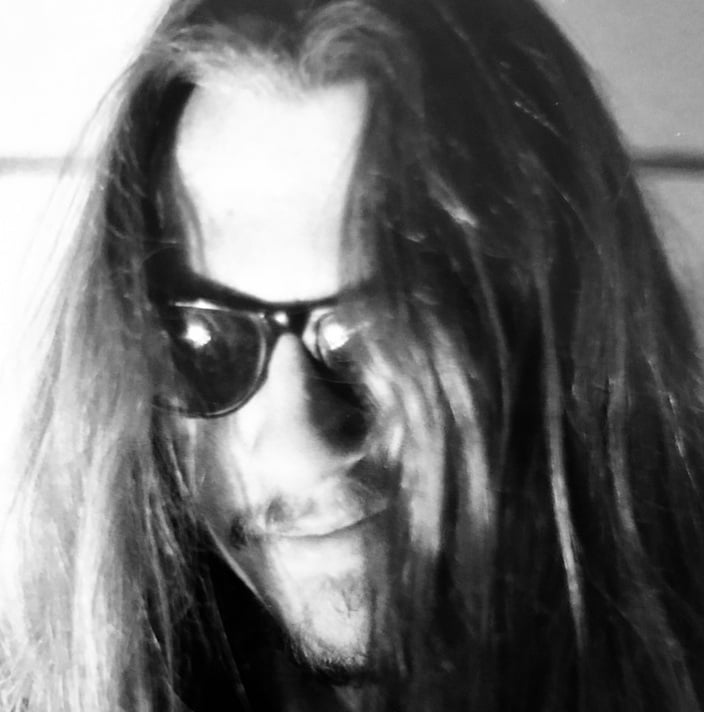/PAlogo_v2.gif) |
|
Post Reply 
|
Page 12> |
| Author | |
earlyprog 
Collaborator 
Neo / PSIKE / Heavy Teams Joined: March 05 2006 Location: . Status: Offline Points: 2086 |
 Topic: What's progressive about 1964? Topic: What's progressive about 1964?Posted: August 19 2006 at 12:28 |
|
The purpose of this thread is to discuss changes in the technology (music related) and the society that resulted in 1964’s “progressive music” which led to proto-prog and eventually progressive rock. Generally, changes in the technology relate to changes in (excuse the terminology and lack of finishing touches) · Technique: recording/studio technique, instruments, musicianship, tour equipment (e.g. speakers) · Processes: Lyrics, song structure, recording process, live performances (concerts, tv, radio), drugs (marihuana, LSD etc.), mixing musical genres etc. · Products: Singles, Album characteristics, Live performances (Concerts, TV, Radio), genre of music · Organisation: Management (financial, tour etc.), producer, band organisation (Lennon may have been the leader of The Beatles but…) Generally, changes in society relate to changes in · Market: Competition (e.g. The Beach Boys), Supply & demand (e.g. supply of progressive rock and other genres and demand for pop music), available clubs and concert venues · Assets/capital: financial, physical, natural, political, social/network (partners, contacts), knowledge, human assets · Power: Ownership, Organisations (e.g. the music industry), Legislation · Living conditions and wants-and-needs of the society (music buying customers): access to tv, radio, drugs etc. More specifically, in 1964 the following may have affected the development of progressive rock: Instruments · George Harrison plays 12-string guitar on the album “A Hard Days Night” · Seventh Sons use sitar and other eastern instruments live ("Raga (4 a.m. at Frank's)" was recorded 1964 but released 1968) Musicianship · · For the first time on record, Lennon records guitar feedback on “I feel fine” (used on stage by Harrison and Lennon as early as 1961?) Processes · Lennon, McCartney and Harrison write lyrics that are no longer solely about the fan-lyricist interrelationship (such as “From me to you” and “P.S. I love you”) but about the lyricist alone reflecting more personal needs (driven by psychological needs - esteem and self-actualization - no longer physiological and sociological needs) · The Beatles start taking marihuana which becomes very influential on their development according to Ringo · Song structure…? (need help) · The Beatles mix pop with folk influences Products · Album-oriented music by The Beatles while maintaining an output of singles that are not included on the albums (began with 1963’s “With the Beatles”) · Self-penned album “A Hard Day’s Night” by The Beatles thereby strengthening the musicians’ control over the music · Progressive pop by the Beatles: “I feel fine” (guitar feedback) · Folk influenced pop by The Beatles on “Beatles for · Progressive lyrics by The Beatles (not solely fan-lyricist relationship) · First raga ever performed live and recorded by an electric group, Seventh Sons (but not released until 1968) Power · The Beatles are allowed more freedom in the studio resulting in the self-penned album “A Hard Day’s Night” Living conditions · The Beatles socialize with Bob Dylan and begin taking marihuana Market · Competition between bands (The Beatles and Beach Boys this early?) · Demand for “progressive music”? by customers and clubs? · Larger “supply” of folk and other non-pop genres (genre mixing begin?) And now your suggestions for the changes in the technology (music related) and the society that resulted in 1964’s “progressive music” which led to proto-prog and eventually progressive rock!!!!!! Edited by earlyprog - August 19 2006 at 15:50 |
|
 |
|
Easy Livin 
Special Collaborator 

Honorary Collaborator / Retired Admin Joined: February 21 2004 Location: Scotland Status: Offline Points: 15585 |
 Posted: August 19 2006 at 13:34 Posted: August 19 2006 at 13:34 |
|
Nice one EP, a lot of thought and research has gone into that.

|
|
 |
|
Sean Trane 
Special Collaborator 
Prog Folk Joined: April 29 2004 Location: Heart of Europe Status: Offline Points: 19626 |
 Posted: August 19 2006 at 14:07 Posted: August 19 2006 at 14:07 |
|
Excellent post
this could be the start of a thread in the blog section if you care to develop more
|
|
|
let's just stay above the moral melee
prefer the sink to the gutter keep our sand-castle virtues content to be a doer as well as a thinker, prefer lifting our pen rather than un-sheath our sword |
|
 |
|
earlyprog 
Collaborator 
Neo / PSIKE / Heavy Teams Joined: March 05 2006 Location: . Status: Offline Points: 2086 |
 Posted: August 19 2006 at 15:39 Posted: August 19 2006 at 15:39 |
|
The Beatles released the single "I want to hold your hand" on 29 november 1963 (both UK and US?), but I believe it wasn't until early 1964 it cracked wide open the US chart for other Beatles records and other British gropus to follow? (see "The Beatles: Past Masters vol. one")
The most important event of 1964 and possibly even in the entire history of music. A huge market was open to the "progressive music" of The Beatles and inspired other groups to go "progressive". Also, European music began go mix with American music and genre mixing began.
|
|
 |
|
earlyprog 
Collaborator 
Neo / PSIKE / Heavy Teams Joined: March 05 2006 Location: . Status: Offline Points: 2086 |
 Posted: August 19 2006 at 15:45 Posted: August 19 2006 at 15:45 |
|
Easy Living and Sean, thanks for your nice comments.
I wish I had more time to develop but I need inspiration/input from other PA members. Feel free to move to other section now or later, whenever appropriate.
|
|
 |
|
earlyprog 
Collaborator 
Neo / PSIKE / Heavy Teams Joined: March 05 2006 Location: . Status: Offline Points: 2086 |
 Posted: August 19 2006 at 15:49 Posted: August 19 2006 at 15:49 |
|
Depending on the responses the thread receives, identical threads for 1965, 1966, 1967, 1968 and 1969 are in the pipeline.
|
|
 |
|
earlyprog 
Collaborator 
Neo / PSIKE / Heavy Teams Joined: March 05 2006 Location: . Status: Offline Points: 2086 |
 Posted: August 20 2006 at 06:54 Posted: August 20 2006 at 06:54 |
|
Roger McGuinn of the Byrds credits Harrison for his own use of a Rickenbacker 12-string. The Byrds, in turn, influenced countless other bands who put the Rick 12 at the center of their own sound.
Directly or indirectly, Harrison shaped the sound of Genesis through Rutherford's use of the 12-string.
Another important event of 1964: February 1964 saw the Beatles' first U.S. visit to perform on The Ed Sullivan Show. Improved living conditions allowed millions of people to see the Beatles on tv. A huge opportunity to market the progressive sound of the Beatles.
|
|
 |
|
mystic fred 
Special Collaborator 

Honorary Collaborator Joined: March 13 2006 Location: Londinium Status: Offline Points: 4252 |
 Posted: August 20 2006 at 13:15 Posted: August 20 2006 at 13:15 |
|
Some very interesting points here - The Beatles were already at the top of their game during 1964 and most of the music industry were following in their wake, though they found kindred spirits in Bob Dylan and The Byrds who they (the Beatles) greatly admired. Indeed for the reasons listed the seeds of prog could well have been sown as early as 1964. Good topic!
ps - more proof here that Harrison's role and influence was greatly underrated during Beatles early years.
also technology played a big part from the musician's point of view, the average playback equipment was extremely primitive, only now can we appreciate the full glory of an early Beatles album, even the very early ones!
Edited by mystic fred - August 20 2006 at 13:21 |
|
 Prog Archives Tour Van Prog Archives Tour Van 
|
|
 |
|
Sacred 22 
Forum Senior Member 

Joined: March 24 2006 Status: Offline Points: 1509 |
 Posted: August 20 2006 at 19:16 Posted: August 20 2006 at 19:16 |
|
What about these guys???
 THE DAVE CLARK FIVE
|
|
 |
|
Eetu Pellonpaa 
Special Collaborator 
Honorary Collaborator Joined: June 17 2005 Location: Finland Status: Offline Points: 4828 |
 Posted: August 21 2006 at 08:35 Posted: August 21 2006 at 08:35 |
|
During 1964 there was also lots of fine art music done (jazz & classical), but they along with rock/pop music were still firmly restricted to their own fences. But as you pointed out, the seed of change was already sown!
|
|
 |
|
Sean Trane 
Special Collaborator 
Prog Folk Joined: April 29 2004 Location: Heart of Europe Status: Offline Points: 19626 |
 Posted: August 21 2006 at 08:38 Posted: August 21 2006 at 08:38 |
I'd love to read this up!
|
|
|
let's just stay above the moral melee
prefer the sink to the gutter keep our sand-castle virtues content to be a doer as well as a thinker, prefer lifting our pen rather than un-sheath our sword |
|
 |
|
Certif1ed 
Special Collaborator 

Honorary Collaborator Joined: April 08 2004 Location: England Status: Offline Points: 7559 |
 Posted: August 21 2006 at 16:55 Posted: August 21 2006 at 16:55 |
|
Good post!
I have a few to add; 1) Radio Caroline launched, breaking the airwaves monopoly of the BBC and allowing the dissemination of a wider range of new music. 2) Don Buchla and Robert Moog put together their first prototype synthesiser. 3) Computer composer Gottfried Michael Koenig developed PROJECT 1, based on the composer Xenakis' ideas of stochastic music - essentially the forerunner of Tangerine Dream et al, but more precisely defined. Stochastic music was based on, of all things, probability principles. * Xenakis, of course, was a student of one of my favourite composers, Olivier Messaien. 4) Electronics Composer Karlheinz Stockhausen pioneers live performances of electronic works with "Mixtur" and "Mikrophonie I". Song structure's a tricky one - I don't have much in my rock/pop collection that predates 1967  /edit - just thought, didn't the Skatellites begin recording around 1964? I know that ska/reggae hasn't got much to do with Prog, but it's the whole "Moderns" ethos of listening to new music that seems to be at the heart of Prog Rock that has resonances here, and ska played an important part in this exploratory tendency - so maybe this is related? Edited by Certif1ed - August 21 2006 at 17:06 |
|
|
The important thing is not to stop questioning.
|
|
 |
|
MikeEnRegalia 
Special Collaborator 

Honorary Collaborator Joined: April 22 2005 Location: Sweden Status: Offline Points: 20527 |
 Posted: August 21 2006 at 17:05 Posted: August 21 2006 at 17:05 |
|
The first episodes of Star Trek are being shot ... how much more progressive can a year get?

|
|
 |
|
Certif1ed 
Special Collaborator 

Honorary Collaborator Joined: April 08 2004 Location: England Status: Offline Points: 7559 |
 Posted: August 22 2006 at 02:34 Posted: August 22 2006 at 02:34 |
     
|
|
|
The important thing is not to stop questioning.
|
|
 |
|
Dick Heath 
Special Collaborator 
Jazz-Rock Specialist Joined: April 19 2004 Location: England Status: Offline Points: 12799 |
 Posted: August 22 2006 at 06:14 Posted: August 22 2006 at 06:14 |
|
Can't ignore the British love affair with black American R'N'B (e.g. Chess with the urban Chicago blues recordings and the earlier delta blues). The Beatles may have had a love affair with Tamla and soul, and Anglicising it but others were developing a harder edge by borrowing and using staighter blues in their pop (so slowly becoming rock), which the Fab 4 borrowed later and turned into their own thing.
In the second part of the excellent BBC 4 documentary last year Jazz Britannia, dealing with the roots of British jazz rock, said a lot about young jazz musicians forced to go electric by their older peers, and appealing to the youth market from the early 60's. Therefore the likes of Graham Bond, Georgie Fame, Alan Price , maybe Zoot Money can't be ignored as providing a forcing ground for musicians who evolved the jazz blues rock, indeed the likes of Alexis Korner and John Mayall for the blue purists.
Ewen McColl seemed to have the UK folk scene in a traditional limbo from the mid 50's to the mid 60's - ditto his brother-in-law Pete Seeger in the USA - until the likes of Davey Graham broke free, taking with him John Renbourne and Bert Jansch (influential on Jimmy Page). The electric work of the young Richard Thompson in Fairport helped to open the split between the traditionalists and the new . Edited by Dick Heath - August 22 2006 at 09:51 |
|
 |
|
Sean Trane 
Special Collaborator 
Prog Folk Joined: April 29 2004 Location: Heart of Europe Status: Offline Points: 19626 |
 Posted: August 22 2006 at 07:08 Posted: August 22 2006 at 07:08 |
I'd have to agree that a good deal of progressiveness in music in the early to mid-60's came from jazz (that's obvious) but also folk and soon to be folk-rock.
|
|
|
let's just stay above the moral melee
prefer the sink to the gutter keep our sand-castle virtues content to be a doer as well as a thinker, prefer lifting our pen rather than un-sheath our sword |
|
 |
|
Dick Heath 
Special Collaborator 
Jazz-Rock Specialist Joined: April 19 2004 Location: England Status: Offline Points: 12799 |
 Posted: August 22 2006 at 10:04 Posted: August 22 2006 at 10:04 |
|
Sean and all
Now been able to make a few minor changes to typos and additions (which I tried to do a few hours ago without luck - my PC and the PA site lack full compatibility), but I don't think it changes the context to which you were responding.
British trad or dixieland jazz, as well as those glorious patiches of 20's jazz from Temperance Seven (who in part influenced the Bonzos), were regularly charting in the UK - doesn't Acker Bilk still hold the record from the longest period of a single was in the UK charts? However, the then unusual 5:4 of Dave Brubeck Quartet's Take Five single, influenced a lot of young musicians, which meant DBQ's albums were bought and absorbed. As I've said before I hear a few direct roots back from Nice's Ars Longa Vita Brevis to DBQ's Live At Carnegie Hall double album (which oddly has only been issued, remastered on CD by Sony Columbia in the last 3 years).
As to folk and prog - check out an excellent read:
Dazzling Stranger: Bert Jansch and the British Folk and Blues Revival by Colin Harper
|
|
 |
|
Dragon Phoenix 
Forum Senior Member 
Joined: August 31 2004 Status: Offline Points: 1475 |
 Posted: August 23 2006 at 02:13 Posted: August 23 2006 at 02:13 |
|
The Animals release House of the rising sun, a hit with a dominating organ sound in the instrumentation.
Edited by Dragon Phoenix - August 23 2006 at 02:14 |
|
|
Blog this:
http://artrock2006.blogspot.com |
|
 |
|
Dick Heath 
Special Collaborator 
Jazz-Rock Specialist Joined: April 19 2004 Location: England Status: Offline Points: 12799 |
 Posted: August 23 2006 at 04:52 Posted: August 23 2006 at 04:52 |
|
I think I mentioned Alan Price in passing - but more the the R'N'B boom in the UK - Stones, Animals, Manfred Mann, Pretty Things etc. later.
|
|
 |
|
Rocktopus 
Forum Senior Member 

Joined: March 02 2006 Location: Norway Status: Offline Points: 4202 |
 Posted: August 23 2006 at 05:14 Posted: August 23 2006 at 05:14 |
|
Two of my newly purchaced jazz favorites are from '64. Eric Dolphy: Out to Lunch and Herbie Hancock: Empyrean Isles.
The complex avantgardejazz especially of the former together with: John Coltrane: A Love Supreme, also from '64, are two of the most influential jazzalbums on progressive rock. |
|
|
Over land and under ashes
In the sunlight, see - it flashes Find a fly and eat his eye But don't believe in me Don't believe in me Don't believe in me |
|
 |
|
Post Reply 
|
Page 12> |
| Forum Jump | Forum Permissions  You cannot post new topics in this forum You cannot reply to topics in this forum You cannot delete your posts in this forum You cannot edit your posts in this forum You cannot create polls in this forum You cannot vote in polls in this forum |